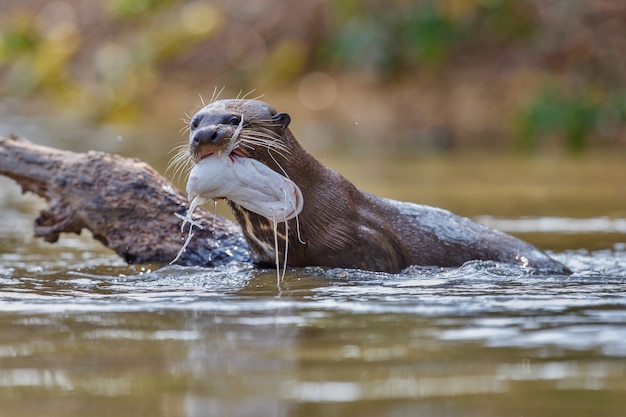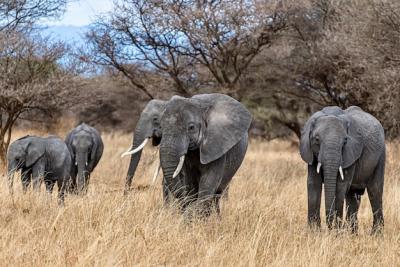Giant River Otter in Its Natural Habitat – Free Stock Photo for Download
Giant River Otter in Its Natural Habitat
The giant river otter is one of the most fascinating creatures found in the wild. These playful animals are known for their social nature, often seen swimming, playing, and interacting with one another. They are not only a sight to behold but also play a crucial role in their ecosystem.
About the Giant River Otter
The giant river otter (*Pteronura brasiliensis*) is the largest member of the weasel family. They can grow up to six feet in length and weigh as much as 75 pounds. Here are some interesting facts about them:
- Habitat: They primarily inhabit rivers, lakes, and floodplains in South America, especially in the Amazon Basin.
- Diet: These otters are carnivorous and mainly feed on fish but will also hunt small mammals, birds, and crustaceans.
- Social Structure: Giant river otters live in family groups, often consisting of 3 to 10 individuals.
Why It's Important to Protect Their Habitat
Protecting the natural habitat of the giant river otter is essential for maintaining biodiversity. Environmental changes, such as deforestation, pollution, and illegal fishing, threaten their populations. Conservation efforts are vital for ensuring that future generations can enjoy the beauty of these incredible animals in the wild.
Viewing Giant River Otters in the Wild
For those interested in wildlife watching, spotting giant river otters in their natural environment can be a rewarding experience. When searching for these creatures, consider the following tips:
- Visit Protected Areas: Look for national parks or wildlife reserves that are home to giant river otters.
- Be Patient: Wildlife watching requires patience. It might take time to see these animals in action.
- Respect Their Space: Keep a safe distance to avoid disturbing their natural behavior.
In conclusion, the giant river otter is not only an important species in the wild but also a delight to observe. By understanding their behaviors and the importance of their habitat, we can contribute to their overall protection and well-being. Support conservation efforts and educate others about these magnificent creatures.












